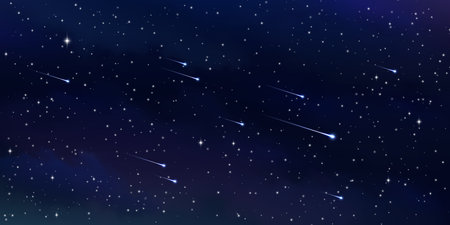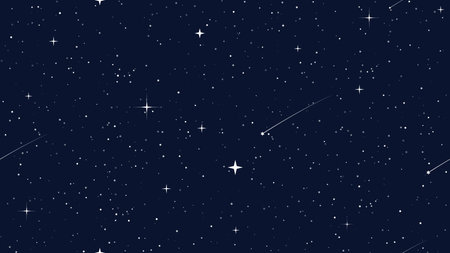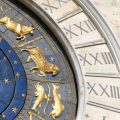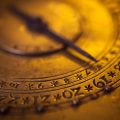Star-Crossed Beginnings: A Brief History of British Astrology
Let’s hop aboard our metaphorical time machine—one with tartan seat covers and a complimentary cup of questionable tea—for a whistle-stop tour through the misty beginnings of astrology in Britain. Our journey starts somewhere between “prehistoric” and “nobody was writing things down yet,” when druids, those leafy forebearers of British mystique, spent their nights gazing at the stars and almost certainly pondering if Mercury was retrograde or just being difficult. These early Britons were quite keen on reading the sky’s mood swings, possibly as an excuse for why the crops kept misbehaving or why Boudica didn’t text back.
Fast-forward to the Elizabethan era—a period when everyone wore ruffs so big they needed planning permission. Here, astrology wasn’t just for tree-hugging mystics; it was practically mainstream. People from all walks of life, including poets, playwrights, and monarchs with trust issues, became obsessed with horoscopes. The celestial charts were less about finding love on a Tuesday and more about making sure you didn’t accidentally annoy a noble who thought Saturn had it in for them that month.
This cosmic fascination didn’t just simmer quietly in the background. Instead, it started elbowing its way into British literature, setting the stage for centuries of star-struck stories and characters who blamed everything—from heartbreak to Hamlet’s indecision—on planetary shenanigans. In true British fashion, astrology became both a source of inspiration and something to poke fun at, depending on whether your horoscope said you’d have a good day or not.
Thus began the grand literary dance between stargazing seriousness and tongue-in-cheek scepticism—a tango that would shape how Britons talked about fate, free will, and whether Virgo really is that picky. Buckle up: British literature is about to take astrology for one wild, witty ride across the ages.
2. Tea Leaves, Tarot, and Talismans in Classic British Texts
It’s a truth universally acknowledged that if you want to know whether to buy a lottery ticket or avoid black cats, literature is your best (and only) reliable source of astrological wisdom. British authors, always eager for a bit of cosmic mischief, have crammed their works with fortune-telling, mysterious omens, and enough questionable soothsayers to fill a slightly tipsy village fête.
The “Astrology Starter Pack” in Literature
From Chaucer’s suspiciously well-informed Wife of Bath to Shakespeare’s star-crossed lovers and the odd doom-laden prophecy tossed into the mix by Marlowe or Milton, astrology has long been the supporting actor who refuses to leave the stage. Who could forget Macbeth’s witches brewing up their own version of celestial guidance—or the endless parade of comets and dreams that predict everything except tomorrow’s weather?
| Author | Text | Astrological Shenanigans |
|---|---|---|
| Geoffrey Chaucer | The Canterbury Tales | Pilgrims consult stars; Wife of Bath blames Venus for her love life |
| William Shakespeare | Romeo & Juliet | “Star-crossed” love; ominous dreams; horoscopes go wild |
| Christopher Marlowe | Doctor Faustus | Summoning spirits; reading portents; regrettable bargains |
| John Milton | Paradise Lost | Eclipses signal bad news (as usual); cosmic foreshadowing abounds |
Recurring Motifs: Ominous Portents and Misplaced Trust
If you ever need a sign from above—preferably vague enough to be interpreted several ways—look no further than classic British texts. These works are littered with head-scratching scenes where characters put their faith in tea leaves, tarot cards, or an enthusiastic astrologer who probably moonlights as a pub quizmaster. The recurring motif? Trusting the stars rarely ends well. Instead, it leads to comic misunderstandings, tragic downfalls, and the occasional accidental wedding.
A Nation of Skeptics (and Secret Believers)
Beneath all this pageantry lies something deeply British: a simultaneous urge to scoff at superstition while quietly checking one’s horoscope just in case. Literature mirrors this national identity crisis perfectly—mocking astrologers on one page, then letting them drive the plot on the next. In summary: if you want to understand Britain’s complicated relationship with astrology, don’t bother looking up at the night sky—just pick up a book and prepare for some cosmic confusion.

3. Satire and Sarcasm: British Wit Meets the Zodiac
If there’s one thing the British do better than queuing, it’s skewering pretension with a dry quip—and astrology has rarely escaped unscathed. Our literary legends have always had a knack for waving their irony wands at the star-gazers, transforming celestial charts into comic gold.
Swiftly Delivered Mockery
Jonathan Swift, that master of biting satire, couldn’t resist poking fun at the self-important almanac makers of his day. In works like “Predictions for the Year 1708,” he mercilessly lampooned astrologers who claimed to predict everything from plagues to potato crop failures (spoiler: potatoes remained deliciously unpredictable). For Swift, astrology was less about stargazing and more about sidesplitting—his pen transforming horoscopes into hilarious horroskips.
Austens Astrological Antics
Fast forward to Jane Austen, and you’ll find subtle but sparkling jabs at fate and fortune-telling woven through her romantic comedies. When it comes to destiny in Austen’s world, nothing is written in the stars—unless Mr Darcy’s horoscope advised him to look brooding while ignoring Elizabeth Bennet’s obvious charms. Austen’s heroines may read fortunes in tea leaves, but ultimately, she knew that British hearts are guided more by wit than by Mercury’s retrograde.
From Punchlines to Public Perception
This tradition of using astrology as a literary punchline did more than entertain; it shaped public attitudes. By turning soothsayers into sources of amusement, British writers taught their readers to approach cosmic predictions with a healthy dose of skepticism—and perhaps a raised eyebrow or two. After all, nothing says ‘destiny’ quite like having your love life determined by whether Jupiter is feeling peckish.
4. From Literary Villains to Everyday Believers: Shifting Public Moods
If you ever wondered whether British literature has a secret hotline to the nation’s collective psyche, look no further than its relationship with astrology. Authors have swung between gleefully ridiculing and sneakily endorsing horoscopes with all the grace of a tipsy lord at a regency ball. This literary tightrope walk did more than amuse or offend; it shaped and mirrored how everyone from aristocrats in powdered wigs to kitchen maids with questionable love lives eyed the night sky for answers—or excuses.
Let’s break down how literature’s mood swings on astrology filtered down to the masses (and the occasional moody duke):
| Era | Literary Attitude | Public Response |
|---|---|---|
| Elizabethan & Jacobean | Mockery mixed with fear—think Shakespeare’s “star-cross’d lovers” and sinister soothsayers | Lords hired astrologers for political advice; commoners blamed Mercury for bad hair days |
| Enlightenment | Savage satire—Swift, Addison, et al., took aim at credulity | Pretending to scoff but reading horoscopes behind closed doors (with tea, obviously) |
| Victorian Era | Sly endorsement—Dickens used astrology to reveal character quirks (and plot twists!) | Boom in palm readers and star charts among all social classes—no class snobbery here! |
| Modernist & Beyond | Self-aware irony—Woolf and Waugh wink at cosmic fate while poking fun at believers | Keen readers embrace astrology as both guilty pleasure and existential comfort blanket |
The beauty of this literary tradition? It’s democratic in its chaos. Whether an author was lampooning gullible astrologers or subtly hinting that maybe, just maybe, Saturn is why Lord Bumbershoot keeps losing at whist, they made sure everyone felt both seen and gently roasted. In short: British writers turned astrology into a sort of national inside joke—one where nobody admits believing, but everybody checks their horoscope when nobody’s looking.
5. Tabloid Horoscopes Meet Literary Respectability
If you’ve ever wondered how we went from Shakespearean stargazing to “Gemini, beware of tall men with sandwiches,” you’re not alone. The British love affair with astrology didn’t just leap from the hallowed halls of Oxford to the sticky pages of The Sun overnight—it migrated, evolved, and got a bit cheekier along the way.
From Highbrow to Page Three
Back in the day, literature’s handling of astrology was all terribly serious and proper. Characters mulled over planetary influences like they were discussing the weather (which, in Britain, is already a national obsession). But as the centuries ticked by, astrology began sneaking into more populist domains. By the time daily newspapers arrived—complete with their own sports pages and scandal columns—horoscopes had elbowed their way into British breakfast tables, right next to your toast and marmalade.
The Daily Horoscope: A National Institution
The humble tabloid horoscope became a British institution faster than you can say “double-decker bus.” These bite-sized prophecies fused literary whimsy with working-class wit. Suddenly, everyone could have a spot of existential dread or hope served up with their tea, courtesy of some mysterious “Astrologer to the Stars” (who may or may not have been Brenda from accounts).
Cross-Pollination: Literature Meets Lunch Breaks
Here’s where things get gloriously messy. As horoscopes grew wilder and more creative, literary types couldn’t help but take notice. Writers began borrowing the melodrama and predictability of tabloid astrology for satire and characterisation—think Bridget Jones obsessing over her stars between diary entries or modern novels poking fun at Mercury retrograde disasters. Meanwhile, tabloid astrologers started channeling Dickensian turns of phrase (“Beware financial misadventure!”) to add an air of old-school gravitas to tomorrow’s lottery numbers.
This cheeky cross-pollination has meant that astrology in Britain is neither fully revered nor entirely ridiculed—it sits somewhere between respected literary tradition and national inside joke. And let’s face it: only in Britain could reading your horoscope be considered both a scholarly pursuit and a guilty pleasure best enjoyed with a cuppa.
6. Astrology’s Legacy: Still Batty After All These Years
Despite centuries of rational thought, scientific progress, and the occasional stiff upper lip, the British public’s affection for astrology remains as inexplicably resilient as a cup of tea during a power cut. Admit it: even the most hard-nosed sceptics have furtively peeked at their horoscopes while queuing for the bus, just to see if Mercury is about to ruin their day (again). But why do we still buy into this starry-eyed nonsense? And what role does British literature play in keeping the celestial circus alive?
The Secret Life of Star-Seekers
Let’s not kid ourselves—astrology has never truly vanished from British life. From Shakespeare’s “star-crossed lovers” to Bridget Jones’s desperate hopes that her stars will finally align with Mr Darcy’s, our literature is littered with sly winks to cosmic fate. It’s almost as if writers knew we needed something whimsical to blame for our tragic love lives, lost umbrellas, and soggy sandwiches. The British penchant for self-deprecating humour finds its perfect mate in astrology: both are excellent excuses for why things go wrong without having to blame ourselves (how convenient).
Horoscopes: Guilty Pleasures and Literary Fodder
Sure, we might sneer publicly at those who swear by moon signs and retrogrades, but privately? Well, let’s just say Mystic Meg isn’t out of a job yet. British novels and newspapers alike have kept horoscopes alive, serving up daily doses of cosmic advice nestled between cricket scores and Brexit debates. Literature continues to give astrology a certain tongue-in-cheek legitimacy—a cultural wink that says, “We know it’s batty, but isn’t it fun?”
Mystical Nonsense With a Side of Irony
In classic British fashion, our ongoing fascination with astrology is rarely earnest; instead, it’s wrapped in layers of irony and wit. Writers from Chaucer to Zadie Smith have used astrological references as both plot devices and comedic relief, gently mocking our willingness to believe that planetary shenanigans dictate everything from the weather to our wardrobe choices. The result? A uniquely British blend of scepticism and secret hope—one foot firmly planted in reason, the other dangling off the edge of magical thinking.
So, as we continue peeking at our horoscopes behind the privacy of a broadsheet or Kindle screen, let us remember: British literature hasn’t just reflected our star-struck tendencies—it has actively shaped them, keeping the ancient tradition alive with a raised eyebrow and an ever-so-slightly mischievous grin. Here’s to many more years of blaming Uranus for our questionable life decisions—all in good literary fun.


